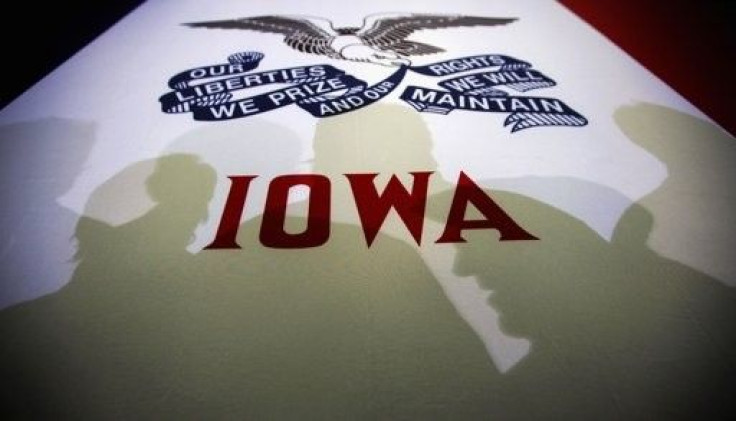Iowa Caucuses - First 2012 Campaign Data Point, but Not Always Predictive
Analysis

The focus of the U.S. political world is on Iowa and its caucuses. It marks the first, popular-based data point of the 2012 campaign for president of the United States.
But a compelling question remains: should the typical American pay close attention to the results of the caucuses?
Political science research and history suggest the answer is no.
The reason? There have been presidential nomination years in which Iowa has been indicative, but also many years when it has not been. Of non-Iowa Caucus winners, there are two glaring examples: in 1980 Ronald Reagan did not win the Iowa caucus; in 1992 Bill Clinton did not it, either.
Iowa: Not the Best Barometer
Some infamous Iowa caucus winners, who did not go on to win their party's nomination for president: Dick Gephardt (1988), Edmund Muskie (1972), Bob Dole (1988), and Mike Huckabee (2008). Others who did not include: Republicans Harold Stassen (1948), Henry Cabot Lodge (1964), Pat Buchanan (1996), and John McCain (2000), as well as Democrats Estes Kefauver (1952) and Paul Tsongas (1992).
Why hasn't Iowa been more-indicative? The major reason is that a caucus differs structurally and psychologically from a secret-ballot election. First, voters are likely to express a different view in a public discussion -- one in which neighbors try to convince their neighbors to support their candidates -- as opposed to a secret-ballot election -- a low-profile event, in which the adult does not feel social pressure to adapt his/her views.
Second, voter turnout is less during a caucus, which is more time-intensive than an election. It's understandable why fewer time-pressed individuals would turn out than those who have more time on their hands and/or who can re-arrange their schedules to block-out time for a caucus.
The net result of the above: the Iowa caucuses often are not representative of the preference of the bulk of a party's voters.
Slam New Hampshire
Further, if political science research is any indicator, the determining factors will be the important New Hampshire primary on Jan. 10 and the multiple events on Super Tuesday -- March 6.
In past presidential-election years, the winning nomination strategy has been to slam New Hampshire, meaning, first win that primary, and then use the increased name recognition, media coverage, and money to perform strongly on Super Tuesday -- when eight primaries or caucuses will be held this time around -- to clinch the nomination.
The New Hampshire primary election is critical in the nomination process for three reasons: 1) its timing, 2) because it is conducted by secret ballot (unlike the Iowa Caucuses), and 3) because the state is seen as being representative of mainstream America and small-town America. To this latter point, voters in the New England state are believed to constitute a good barometer of what the bulk of the party members in the rest of the nation -- the Midwest, the South, and the Rocky Mountain region -- are thinking.
For this reason, the winner of the New Hampshire primary frequently secures the party's nomination for president.
However, there have been exceptions: The last was in 2008, when then-U.S. Sen. Hillary Clinton, D-N.Y., won the New Hampshire primary but lost the Democratic Party nomination to then-U.S. Sen. Barack Obama, D-Ill.
Other New Hampshire primary winners who did not win their party's nomination include Republicans Harold Stassen (1948), Henry Cabot Lodge (1964), Pat Buchanan (1996), and John McCain (2000), as well as Democrats Estes Kefauver (1952) and Paul Tsongas (1992).
The above are the exceptions: far more prevalent is the New Hampshire-nomination nexus. Political science is still a young science, but if there is one political science theory you can take to the bank it is this: If a candidate wants to win a party's nomination, he or she needs to win the New Hampshire primary -- or at least perform very well in it.
After New Hampshire Win, Concentrate on Super Tuesday
After a New Hampshire primary victory, the prudent strategy historically has been for the front-running candidate -- armed with the massive increase in name recognition, media coverage, and campaign contributions that such a win produces -- to concentrate assets and campaign time on Super Tuesday: the day when the most primaries or caucuses are conducted, and, by extension, the day when the most delegates to the nominating convention are chosen.
In 2008, Super Tuesday was on Feb. 5, but this time around, it will be on March 6. Given the longer gap between the New Hampshire primary and Super Tuesday in the current context, the primaries in-between -- in Arizona, South Carolina, and Michigan -- and the caucus in Nevada will count more, from a momentum standpoint, than they historically would.
But Super Tuesday will still be the second major data point of consequence in the nominating process. In other words, if a candidate wins the New Hampshire primary and performs very well on Super Tuesday, that candidate is all but assured of winning his or her party's nomination.
Political Analysis: Hence, whether the front-runner wins in Iowa or whether the long-shot wins or performs better-than-expected, take the Iowa Caucus results with a grain of salt. It provides some evidence regarding what a particular party's voters are thinking, but by no means is it as telling as a secret-ballot election.
--
© Copyright IBTimes 2024. All rights reserved.











